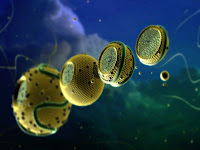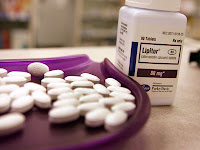It’s nice to have a doctor who really knows you. I always say, there’s a big difference between healers and technicians. Technicians know the ins-and-outs of their discipline, but they often lack the interpersonal skills necessary to make their patients feel comfortable.
Knowing one’s patients–their lives, family details, what drives them, their values–helps a doctor effectively communicate recommendations, and increases the likelihood that the patient will either follow through with the plan, or at least that the two can work together to find an alternative course of treatment. Without having this type of interaction, the doctor-patient relationship runs the risk of becoming one of authority-subordinate, nag-nagged or money grubber-chump.
 Take my doctor, Dr. W, for example: he knows me. He knows my family, my work, my job, my beliefs, and so on. But best of all, he knows my health habits. He knows that I work out regularly; he knows that I take vitamins, and he knows that I don’t do drugs or alcohol. To top it all off, he knows that I am probably not going to take his statins. Yes, that’s right–I don’t care if my LDLs are one-bleepity-bleep–no statins for me, thank you very much.
Take my doctor, Dr. W, for example: he knows me. He knows my family, my work, my job, my beliefs, and so on. But best of all, he knows my health habits. He knows that I work out regularly; he knows that I take vitamins, and he knows that I don’t do drugs or alcohol. To top it all off, he knows that I am probably not going to take his statins. Yes, that’s right–I don’t care if my LDLs are one-bleepity-bleep–no statins for me, thank you very much.
I love that he knows this about me. When giving me my annual physical exam results, he leaves a nice voicemail message, finishing it off with, “And your cholesterol is high. I’m recommending statins, so I’ll call the pharmacy and leave the prescription because I know you’ll probably tell me that you’re not going to take them.”
 Ah, good ol’ Dr. W. He knows me in and out. He knows what I’ll do and what I won’t. He genuinely cares about me, my work, and my family; and that’s why I keep going back to see him. Dr. W is a healer because he knows how to listen, is observant and doesn’t try to overpower me with his health-authority bull$&*! Good health care, Dr. W, and I appreciate it. But I’m still not taking any statins.
Ah, good ol’ Dr. W. He knows me in and out. He knows what I’ll do and what I won’t. He genuinely cares about me, my work, and my family; and that’s why I keep going back to see him. Dr. W is a healer because he knows how to listen, is observant and doesn’t try to overpower me with his health-authority bull$&*! Good health care, Dr. W, and I appreciate it. But I’m still not taking any statins.













